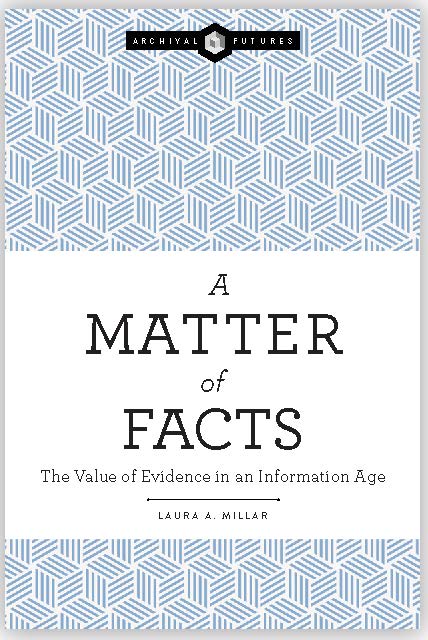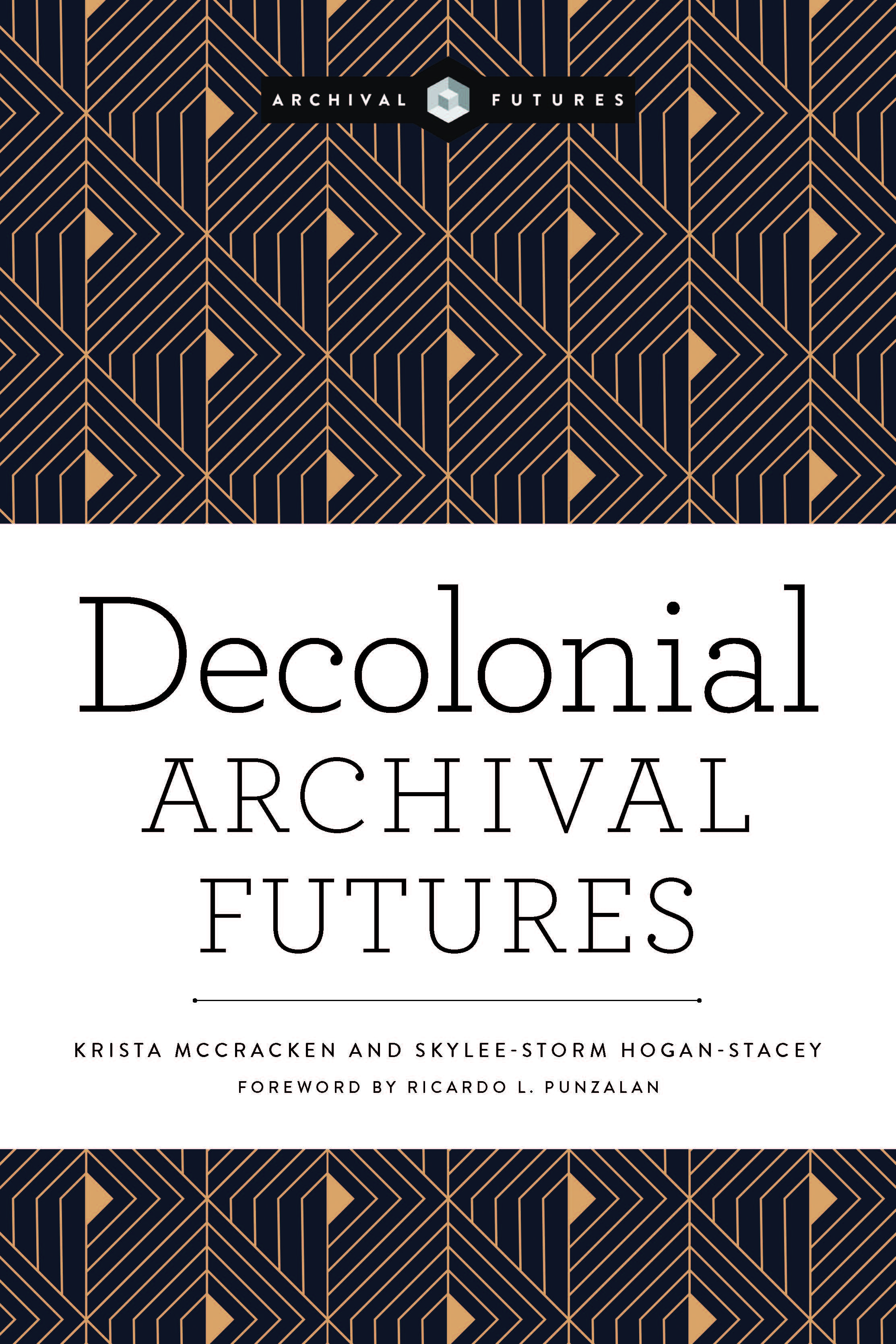- About Archives
- About SAA
- Careers
- Education
- Publications
- Advocacy
- Membership
 BETHANY ANDERSON and AMY COOPER CARY, EDITORS
BETHANY ANDERSON and AMY COOPER CARY, EDITORS
Archival Futures is a new series, published jointly by the Society of American Archivists and the American Library Association, that critically engages issues related to archives as—and for—the public good. This series explores professional values and current innovations in archival and library practice, while engaging in provocative discussion about the significance of archival work to the general public. Topics might include archives and anthropology; archives and citizenship; archives and critical race theory; archives and the right to be forgotten; archives and social media; or archives and civic data, to name a few.
Have an idea for a book? We are seeking proposals for volumes of 20,000 to 50,000 words, that demonstrate innovative thinking, cut across cultural and professional boundaries, and stimulate discussion about archives as institutions and sustaining forces in modern society. These extended essays will broadly address areas at the intersection of archives, society, and technology. Submit a proposal.
For more information about the series, or to discuss a potential proposal, please contact series editors BETHANY ANDERSON (bgandrsn@gmail.com) and AMY COOPER CARY (amy.cary@marquette.edu).

The safeguarding of authentic facts is essential, especially in this disruptive Orwellian age, where digital technologies have opened the door to a post-truth world in which “alternative facts” can be so easily accepted as valid. And because facts matter, archives matter. In this urgent manifesto, Laura Millar makes the case that authentic and accurate evidence is crucial in supporting and fostering a society that is respectful, democratic, and self-aware. An eye-opening treatise for the general public, an invaluable resource for archives students, and a provocative call-to-arms for working professionals, Millar’s book:
With documentary examples ranging from Mesopotamian clay tablets to World War II photographs to today’s Twitter messages and Facebook posts, Millar’s stirring book will encourage readers to understand more fully the importance of their own records and archives, for themselves and for future generations.
About the author:
Laura A. Millar is an independent consultant in records, archives, and information management and in publishing and distance education. She has consulted with governments, nonprofit organizations, and other agencies around the world. She is the author of dozens of publications, including Archives: Principles and Practices, for which she has received the Society of American Archivists' 2011 Waldo Gifford Leland Award. She has taught records and archives management in universities in Canada and internationally. She lives with her husband in Roberts Creek, British Columbia, Canada.
Click here to order A Matter of Facts

Providing examples of successful approaches to unsettling Western archival paradigms from Canada, the United States, New Zealand, and Australia, Decolonial Archival Futures showcases vital community archival work that will illuminate decolonial archival practices for archivists, curators, heritage practitioners, and others responsible for the stewardship of materials by and about Indigenous communities.
Simply put, decolonial archival practices involve thinking about and consciously changing how historical knowledge is produced, communicated, and preserved. By examining archival practices that push against and actively counter settler colonialism, this book challenges non-Indigenous practitioners to consider constructs of knowledge, which histories we tell, and how the past is presented. Guided by the authors' incisive synthesis of theory and current practices, readers will learn:
About the authors:
Krista McCracken is an award-winning public historian and archivist. They work as a researcher/curator at Algoma University's Arthur A. Wishart Library and Shingwauk Residential Schools Center in Baawating (Sault Ste. Marie, Ontario), on the traditional territory of the Anishinaabe and Métis people. Krista's work focuses on community archives, residential schools, access, and outreach.
Skylee-Storm Hogan-Stacey is a public historian, researcher, and analyst currently living and working on the unceded territory of the Algonquin Anishinaabek in Ottowa, Ontario. A descendant of the Mohawk Nation of Kahnawà:ke, Skylee-Storm has explored community archival practices, Indigenous archival access, residential school history, Indigenous-Crown legal history, and oral history.
Click here to order Decolonial Archival Futures
Spanning H. G. Wells’s The Time Machine to Marvel’s Loki, this delightful book considers how science fiction stories portray archives and archivists, analyzes the ways in which these portrayals affect readers’ views, and shows how archivists can leverage these insights to improve the public’s understanding of the discipline.
The fascination with time travel and its consistent popularity within the science fiction genre is deeply rooted in science fiction writers’ and readers’ passion for history and, by extension, for libraries and other kinds of archives. However, time travel, archives, and history intersect in the public imagination in ways that don’t always match up with the reality of archival work. This book engages archivists and devotees of science fiction alike by exploring common tropes within the genre—and common assumptions in the archival profession—and providing context. Presenting a book that can serve as a teaching text, readers’ advisory guide, and thought-provoking page turner, the authors
About the authors:
Lynne M. Thomas, a twelve-time Hugo Award-winner, is the head of the Rare Book and Manuscript Library and Juanita J. and Robert E. Simpson Rare Book and Manuscript Professor at the University of Illinois at Urbana-Champaign. She previously served as the Head of Distinctive Collections and Curator of Rare Books and Special Collections at Northern Illinois University in DeKalb, Illinois. She is the co-author of “Special Collections 2.0” and the co-editor of “New Directions for Special Collections: An Anthology of Practice,” both with Beth Whittaker. She also co-edited the Hugo Award-winning “Chicks Dig Time Lords” with Tara O'Shea and contributes to the Verity! "Doctor Who" Podcast.
Katy Rawdon is the coordinator of Technical Services for the Special Collections Research Center at Temple University. She worked previously as the Director of Archives, Libraries, and Special Collections at the Barnes Foundation. She co-authored the chapter "What's in a Name? Archives for Black Lives in Philadelphia and the Impact of Names and Name Authorities in Archival Description" in “Ethical Questions in Name Authority Control” and the Archives for Black Lives in Philadelphia Anti-Racist Description Resources (2019) and contributed to the Best Practices for Queer Metadata (2024) as part of the Queer Metadata Collective. She is also a published author of romance novels (as Katy James) and poetry.